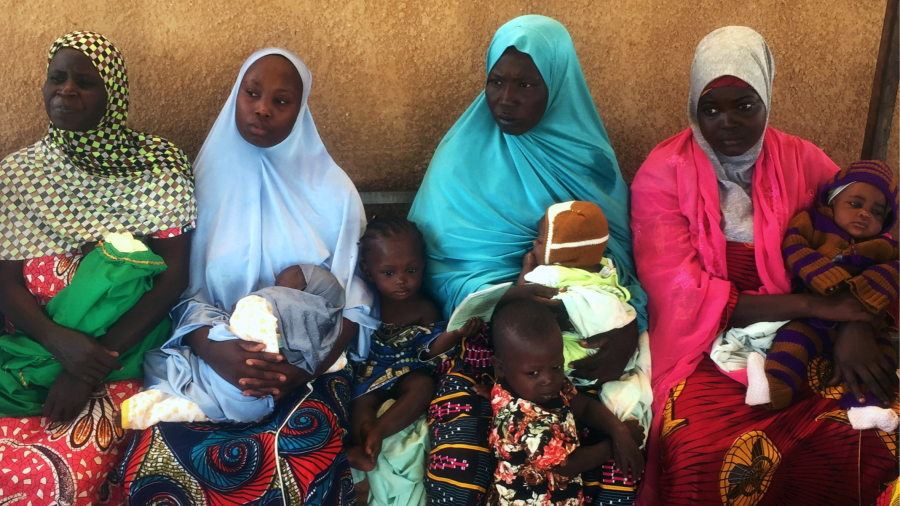
If Niger’s population explosion has an epicentre, it is Issaka Gazoby maternity hospital in the sandswept capital of Niamey. It is here that Mady Nayama, the facility’s director, and his staff perform daily miracles in a country that, at 6.6 children per woman, has the world’s fastest-growing population.
The hospital provides free treatment to expectant mothers from across a country twice the size of France, many with complications requiring emergency caesareans. “They come from Diffa, from Agadez, from Zinder,” Nayama said of those who arrived from distant cities.
“It’s really not easy,” he added during a tour of the overcrowded wards, as anxious relatives waited outside for news in temperatures that touched 40C.
On current trends, Niger’s population is on course to nearly triple from about 24mn in 2020 to a projected 68mn in 2050, according to the UN Development Programme’s latest forecast. If that projection proves correct, Niger’s population will have grown 25 times in the century to 2050, a period over which the global population will have risen a relatively modest fourfold.
For some Nigeriens, such prodigious growth is something to celebrate in a world where populous countries such as China enjoy geopolitical clout. But while the fast-growing population in much of Africa is often presented as a demographic boon, many people warn about the links between a high birth rate and poverty.
Although Niger is an outlier, many other African countries, especially in the west and east of the continent, are also experiencing fast population growth. By 2050, one in four people will be African against nearly one in six today.
“People say that this is just something that worries western countries,” said Garé Amadou, editor in chief of La Nation newspaper, of what some regard as a hidden foreign agenda to contain Africa’s population. “In Niger the main way of thinking is that we have a vast land and not enough people.”
For Djamila Ferdjani, a medical doctor and university professor in Niamey, this is the wrong conclusion, especially in a semi-desert country where fertile land is at a premium. “Poverty generates [a] high birth rate and [a] high birth rate generates poverty. The fundamental question is how to break this circle,” she said.
Niger regularly appears at the bottom of the UN’s human development index and has an income per capita at market prices of just $600 a year.
“A family that does not have access to healthcare will see some of its children die, so prepares accordingly,” said Ferdjani.
“A family without access to energy, water, nearby schools or a decent roof will keep daughters at home early to help mothers — often anaemic and tired from pregnancies — with household chores or marry them off as soon as possible to benefit from the dowry.”
Many economists believe a birth rate — the average number of babies a woman is projected to have in her lifetime — of below three is a prerequisite for rapid development. “Countries with high fertility rates never get rich,” said Charles Robertson, chief economist at Renaissance Capital and author of The Time Travelling Economist.
President Mohamed Bazoum, who was elected last year, has weighed in on an issue that is sensitive in a nation where 98 per cent of the population is Muslim and many men regard large families as prestigious.
In his inauguration speech in April 2021, Bazoum characterised the high birth rate as a weakness, saying that girls were dropping out of school and marrying too early. About 77 per cent are married before the age of 18 and 28 per cent before their 15th birthday.
He has set his government the task of keeping girls in education for longer, even in border regions where many schools are disrupted by jihadist activity.
Bazoum, who has linked terrorist recruitment with demographics — too many young men seeking too few jobs — has advocated the establishment of nationwide boarding schools where girls can be taught in safety.
In June, Bazoum went a step further by banning his own cabinet ministers from taking a second wife, declaring that the practice of polygamy was “a bad thing”. This is a politically risky pronouncement in a country where nearly a third of the population lives in polygamous marriages.
“What he’s saying is just crazy. He’s a comedian,” said Mikka Adam Maiga, 56, a professional translator who has two wives and is to marry a third. “My belief is that he wants to please western countries, though why I don’t know.”
Maiga said the Koran encouraged men to have many children and more than one wife, so long as they could provide for them.
“Certain things are allowed in western countries: a woman can marry a woman or have sex with many men without being married, but these things are not permitted in my religion or culture,” he said.
Fatima Zara Konate, a government official in Tillabéri a town close to the border with Mali where many schools are closed because of insecurity, said people were having children they could not afford.
“Today’s population growth in Africa is frightening,” she said, adding that young people without jobs were turning to crime or even terrorism. “It’s poverty that turns these children into vagabonds. I have three children and that’s enough for me.”
Back at the Issaka Gazoby hospital, Nayama said there were signs that attitudes were changing.
Many religious leaders were advocating the use of contraception, while men were also showing a greater interest in their pregnant wives, with some even accompanying them to the labour ward, something that was rare until recently, he said.
Teenage pregnancies were falling and Niger’s birth rate, although still the world’s highest, had been edging down for the past two decades.
Still, Nayama said, some people were resistant to change. “Our religion tells us that, if God gives a child, he will feed it. But that’s not happening.”